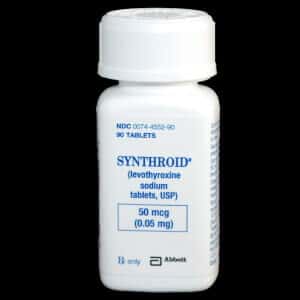
Treating a thyroid hormone imbalance successfully requires interpreting thyroid test results correctly. That can sometimes be tricky, especially since one of the crucial measurements, thyroid stimulating hormone (TSH, a brain hormone), moves in the opposite direction to most of the other compounds that are measured to assess thyroid function.
It seems that even physicians may sometimes find it difficult to evaluate such test results from a thyroid panel.
Q. I am 56 years old and suffer from hypothyroidism. I’ve been taking a hormone replacement (levothyroxine) for about 20 years. I am also taking a daily low dosage of Lexapro.
Yesterday, my thyroid blood work came back with T3 in the normal range and TSH high. My doctor LOWERED my Synthroid dose.
I’m confused. Shouldn’t my dose have been raised if my TSH is high?
A. You are absolutely right. When TSH (thyroid stimulating hormone) is high, the body is trying to get the thyroid gland to make more hormone because the brain has detected a shortfall. We don’t understand your doctor’s rationale for lowering your dose.
The changes in your thyroid test results may be due to the antidepressant escitalopram (Lexapro) that you take. A case report of hypothyroidism triggered by escitalopram showed normal levels of free T3 and free T4 with elevated TSH (Hormones, Jan.-Mar., 2012).
The Guide to Thyroid Hormones that we are sending you explains how interpreting thyroid test results can be used to assess thyroid status; it also discusses interactions. You may want to show the guide to another physician when you request a second opinion.

